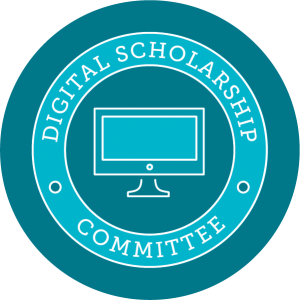Did you know that our Digital Scholarship Guide contains association and disciplinary guides for art disciplines, the American Historical Association, and the Modern Language Association?
In today’s In the Know on the Go, we take a look at MLA’s Guidelines for Evaluating Work in Digital Humanities and Digital Media to help humanities students, faculty, and departments get the most out of digital scholarship.
MLA provides candidates for jobs and faculty positions, and existing faculty members with recommendations for negotiating specifics regarding the ways in which their digital work will be validated in academic processes. Within these guidelines, there is an emphasis on the importance of work documentation and what documentation for digital humanities and digital media work resembles. Digital humanities scholars just getting started in digital work, or actively looking for positions should consult the guidelines for tips on self-advocacy and institutional support.
For committees responsible for tenure, promotion, and appointments, MLA’s guidelines recommend tailoring job descriptions and responsibilities to reflect the inclusion of digital work; including faculty experienced with digital media or digital humanities, or engaging with faculty across disciplines, in the review process; and acknowledging mediums and accessibility.
If you’re not sure where to start with digital scholarship and digital humanities in your research, or if you’re unsure if what you’re doing counts as digital humanities, our Digital Scholarship Guide contains cross-disciplinary resources and guidelines to assist you in your digital work.
Visit Evaluating Digital Scholarship within our Guide for more information about digital frameworks, evaluation, promotion, and tenure!


